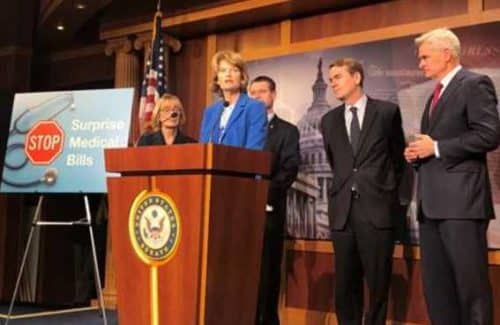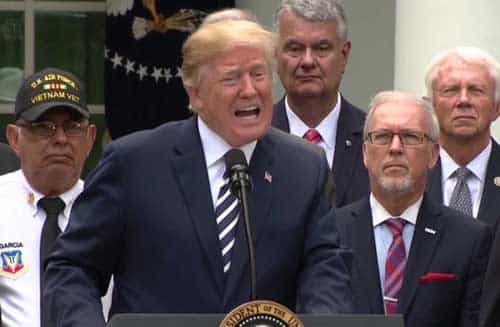Wasilla, AK—Friday, Governor Mike Dunleavy signed a series of healthcare bills into law. Sponsored by Senator David Wilson, R-Wasilla, Senate Bill 45, Senate Bill 74, and Senate Bill 75 seek to improve access to healthcare and streamline licensing for specific medical professionals.
First, Senate Bill 45 streamlines Alaskans’ healthcare access by introducing Direct Health Care Agreements (DHCAs) between patients and healthcare providers. These agreements involve patients paying a flat, periodic fee for routine visits and access to their provider, without involving third-party insurers. By cutting out insurance bureaucracy, DHCAs reduce administrative burdens for doctors, allowing them to spend more time with patients. While DHCAs can complement existing insurance plans, they are not insurance themselves and should not be regulated as such. The bill seeks to clarify the legal status of DHCAs, ensuring they are excluded from insurance regulations and thus enhancing public access to affordable, high-quality healthcare.
“Senate Bill 45 is a win for Alaska. Providers will now spend less time on paperwork and more time with their patients. Ultimately, it means more access to primary care in Alaska. I am grateful to Governor Dunleavy for recognizing that and signing it today,” said Representative Kevin McCabe, R-Big Lake, sponsor of the House companion legislation.
“Alaska’s high healthcare costs place a significant burden on residents, but Bill SB45 aims to ease this by allowing direct healthcare agreements between patients and providers. These agreements remove financial barriers to accessing routine care, such as preventive, wellness, and chronic care services,” said Sen. Wilson. “With a DHC plan, the doctor-patient relationship is prioritized, and providers are free from insurance paperwork. I believe this legislation will provide much-needed relief, making quality healthcare more affordable and accessible for all Alaskans.”
Second, Senate Bill 74 enters Alaska in an Interstate Physical Therapy compact (PTC). The PTC, enacted in 2017 and adopted by 34 states, allows eligible physical therapists and assistants to obtain compact privileges in member states, ensuring healthcare availability at the highest standard. Compacts, functioning as state-based solutions, enable states to retain policy control over interstate matters and preserve their authority without federal intervention, which is crucial for promoting interstate physical therapy practice and safeguarding state sovereignty.
Lastly, Senate Bill 75 enacts the Audiologist and Speech-Language Pathologists Interstate Compact (ASLP-IC), which allows eligible professionals from compact member states to obtain licenses to practice in other member states easily. This facilitates better healthcare availability, particularly in remote areas like Alaska, while ensuring services meet high standards. The bill emphasizes the importance of interstate compacts as a way for states to address shared challenges without federal intervention, preserving state sovereignty. It seeks to encourage cooperative solutions among states and protect their authority over policy areas.
“With the signing of SB 74 and SB 75, Alaska has entered professional licensure compacts for the first time. These bills pave the way for more providers in our state. They are a win for providers, and they are a win for patients waiting for care. Alaska needs to improve our professional licensing structure; today, we have taken one step towards that goal,” concluded Sen. Wilson.
“I’m proud to have carried the companion legislation and to support Senator Wilson’s hard work on SB 74 and SB 75. These compacts will make a real difference for Alaska’s military families and ensure all Alaskans have better access to specialized healthcare,” said Representative Stanley Wright, R-Anchorage, House sponsor of the companion legislation to SB 74 and SB 75.
[content id=”79272″]








